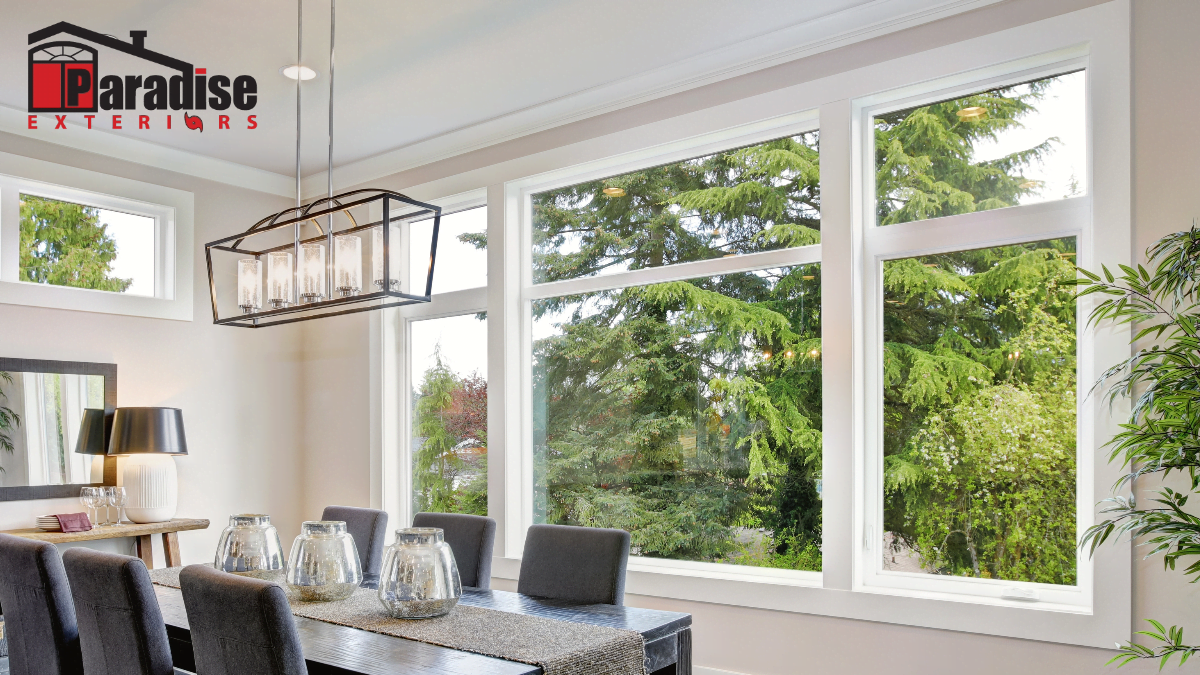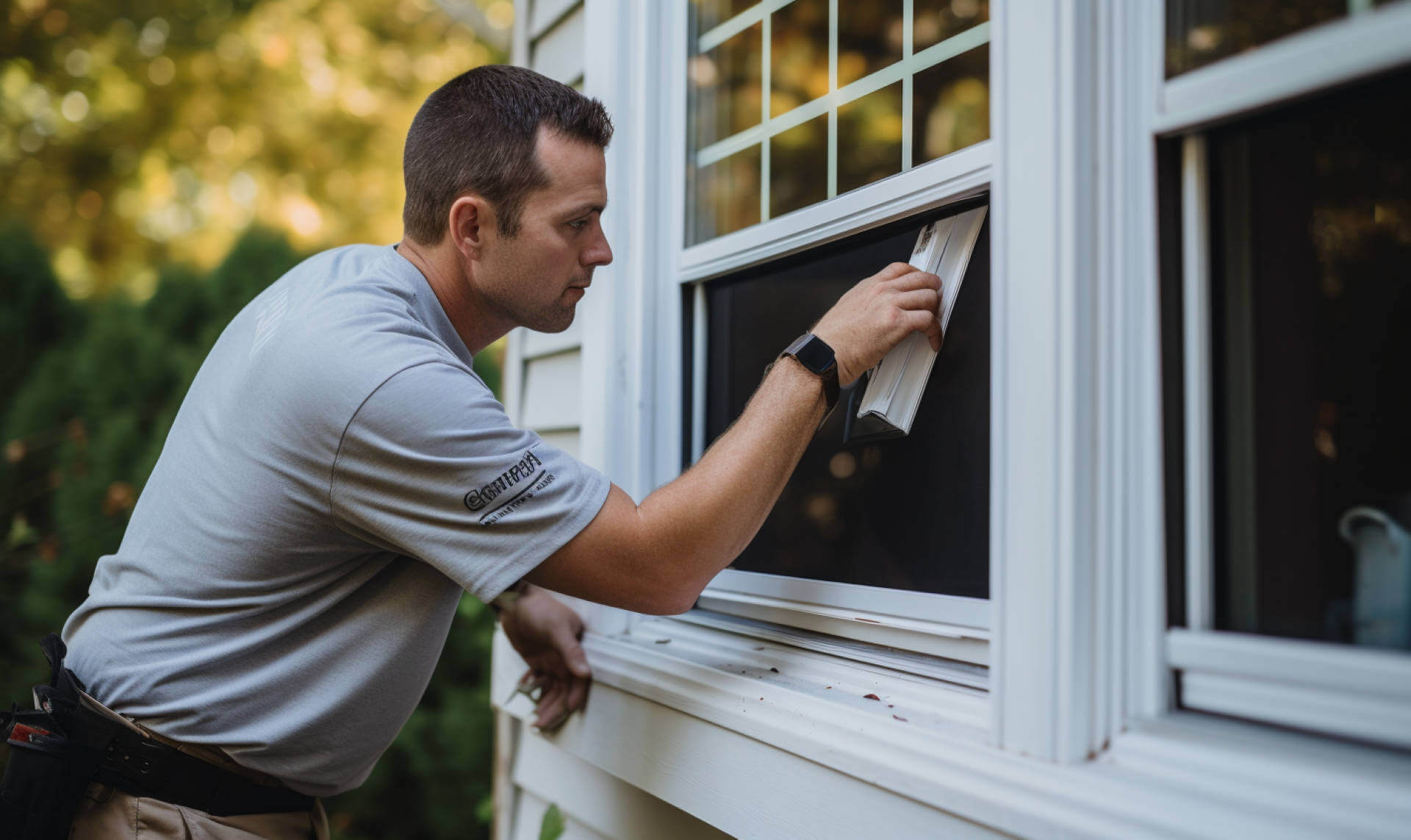Upgrade Your Home With Energy-Efficient Window Substitutes
In the realm of home improvement, the choice to upgrade to energy-efficient home window replacements can significantly influence both the functionality and looks of a residence (Houston window replacement). As homeowners seek ways to boost the effectiveness and sustainability of their home, the selection of home windows plays a crucial function in attaining these goals. Beyond the surface degree of plain appearances, energy-efficient windows provide a wide variety of advantages that exceed simple curb charm. With a mindful selection process that thinks about different factors, from glass kinds to installation methods, embarking on this home upgrade trip might show to be a transformative venture.
Benefits of Energy-Efficient Windows

The installation of energy-efficient home windows supplies significant financial savings on energy costs while improving environmental sustainability. Energy-efficient home windows are created to lessen warm loss and gain, minimizing the need for home heating and cooling down systems to burn the midnight oil. By successfully shielding the home, these windows aid maintain a comfortable interior temperature level year-round, resulting in lower power consumption and lowered utility costs. In addition, energy-efficient windows can aid regulate moisture levels within the home, minimizing the danger of mold and mold growth.
Beyond the monetary benefits, energy-efficient home windows add to environmental sustainability by decreasing carbon emissions connected with power manufacturing. By lowering power use, these windows assist mitigate the environmental influence of heating, lighting, and air conditioning household areas. This decrease in energy consumption plays a crucial duty in combating environment change and advertising a greener future for generations to find. Generally, purchasing energy-efficient windows not only boosts the comfort and performance of a home yet likewise aligns with environmentally mindful practices.
Types of Energy-Efficient Glass
Numerous sophisticated sorts of energy-efficient glass offer unique buildings that accommodate different needs and choices in enhancing the sustainability and efficiency of buildings. Low-emissivity (Low-E) glass is a popular alternative made to lessen the amount of ultraviolet and infrared light that can travel through the glass, therefore minimizing heat transfer. This kind of glass helps preserve a constant interior temperature level, reducing the requirement for home heating or cooling systems, and ultimately lowering power costs. Another cutting-edge alternative is spectrally discerning glass, which allows visible light to travel through while blocking particular kinds of infrared radiation. This aids in keeping a comfy indoor environment while lessening heat gain. Triple-pane glass, including 3 layers of glass with protecting gas between them, gives improved thermal insulation, making it highly energy-efficient. Furthermore, self-cleaning glass with an unique covering that damages down and loosens dust when exposed to sunlight can decrease maintenance demands and keep windows looking clean. Each sort of energy-efficient glass offers distinct advantages, permitting property owners to select the most suitable choice based upon their particular demands and goals.
Aspects to Take Into Consideration When Choosing
When contemplating energy-efficient home window replacements, it is necessary to very carefully examine particular aspects that straighten with your sustainability objectives and desired power cost savings. One essential variable to consider is the home window's power performance ratings, such as the U-factor and Solar Warm Gain Coefficient (SHGC) The U-factor procedures just how well the home window insulates, with lower numbers suggesting better insulation, while the SHGC suggests the home window's capacity to block warmth from sunshine. In addition, the window structure material plays a significant role in energy performance. Materials like fiberglass, vinyl, or wood with thermal breaks are excellent options for minimizing warm transfer. An additional vital consideration is the home window style and positioning worrying sunshine direct exposure. Picking the right home window design and tactically positioning them can take full advantage of all-natural light while minimizing warmth gain or loss. Last but not least, installment high quality is vital to making sure the windows perform as intended. Proper installment aids stop air leak, guaranteeing ideal energy effectiveness. By meticulously evaluating these variables, you can select energy-efficient windows that enhance convenience, decrease energy costs, and benefit the atmosphere.
Setup and Maintenance Tips

Regular maintenance is crucial to protecting the performance of your energy-efficient home windows. Inspect the weather-stripping and seals for any voids or tears and change them if needed to maintain the windows' energy performance. Conroe window replacement.
Furthermore, lubricate moving parts such as locks and joints to ensure smooth operation. By following these installment and upkeep go now tips, you can boost the energy performance of your home and prolong the life expectancy of your energy-efficient home windows.
Cost-Benefit Evaluation of Upgrading

Energy-efficient windows are developed to decrease heat transfer, minimizing the demand for heating and cooling systems to work overtime. This can bring about substantial savings on power expenses, particularly in regions with severe temperature levels. Additionally, energy-efficient windows can boost the why not look here general value of your home, making it more eye-catching to potential purchasers if you make a decision to sell in the future.
When calculating the cost-benefit analysis, consider the possible cost savings on energy bills, any kind of readily available rewards or discounts, and the life expectancy of the home windows. While the first expense may be greater, the long-lasting cost savings and benefits of energy-efficient home windows make them a clever investment for home owners aiming to enhance their home's energy effectiveness and worth.

Final Thought
To conclude, upgrading to energy-efficient home window substitutes offers many advantages such as decreased power usage, raised convenience, and cost savings. By choosing the proper sort of energy-efficient glass and thinking about aspects like framework material and installment, house owners can take full advantage of the performance of their windows. Normal upkeep and appropriate installment are vital for long-lasting performance. On the whole, the cost-benefit evaluation of updating to energy-efficient windows shows that the first financial investment can cause considerable savings in the future.
When contemplating energy-efficient home window substitutes, it is crucial to thoroughly examine particular aspects that straighten with your sustainability goals and wanted energy cost savings. The U-factor steps exactly how well the home window protects, with reduced numbers indicating far better insulation, while the SHGC suggests the website here home window's capacity to obstruct heat from sunshine. By very carefully assessing these variables, you can select energy-efficient home windows that enhance convenience, decrease energy costs, and profit the atmosphere.
While energy-efficient windows may have a higher upfront cost contrasted to typical home windows, the long-term benefits usually surpass the preliminary investment.In verdict, updating to energy-efficient window substitutes uses various benefits such as decreased energy consumption, increased comfort, and expense savings.